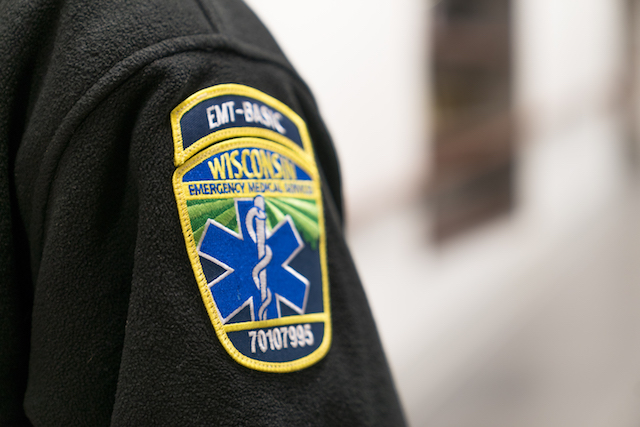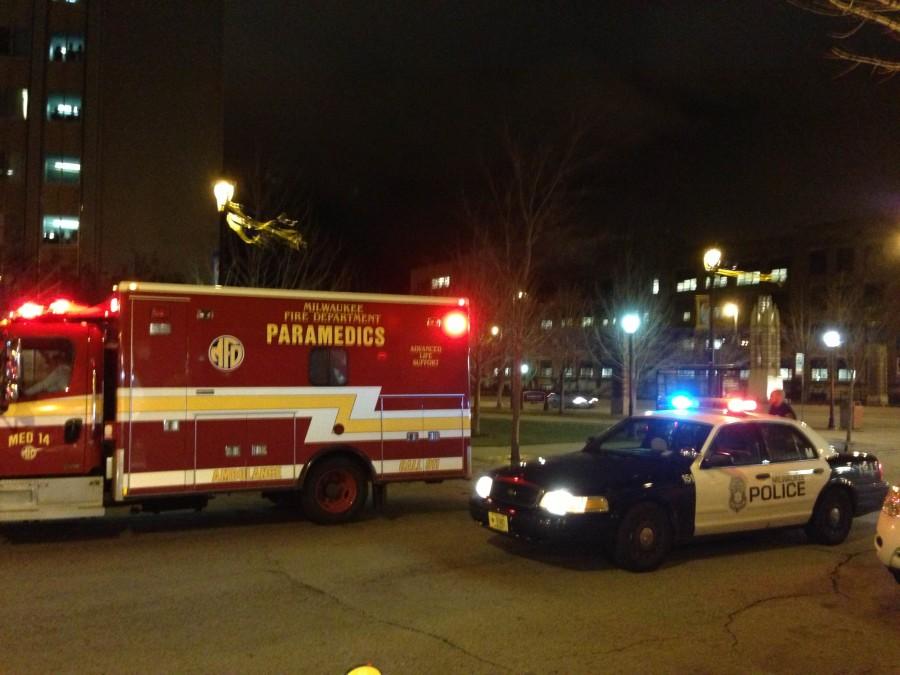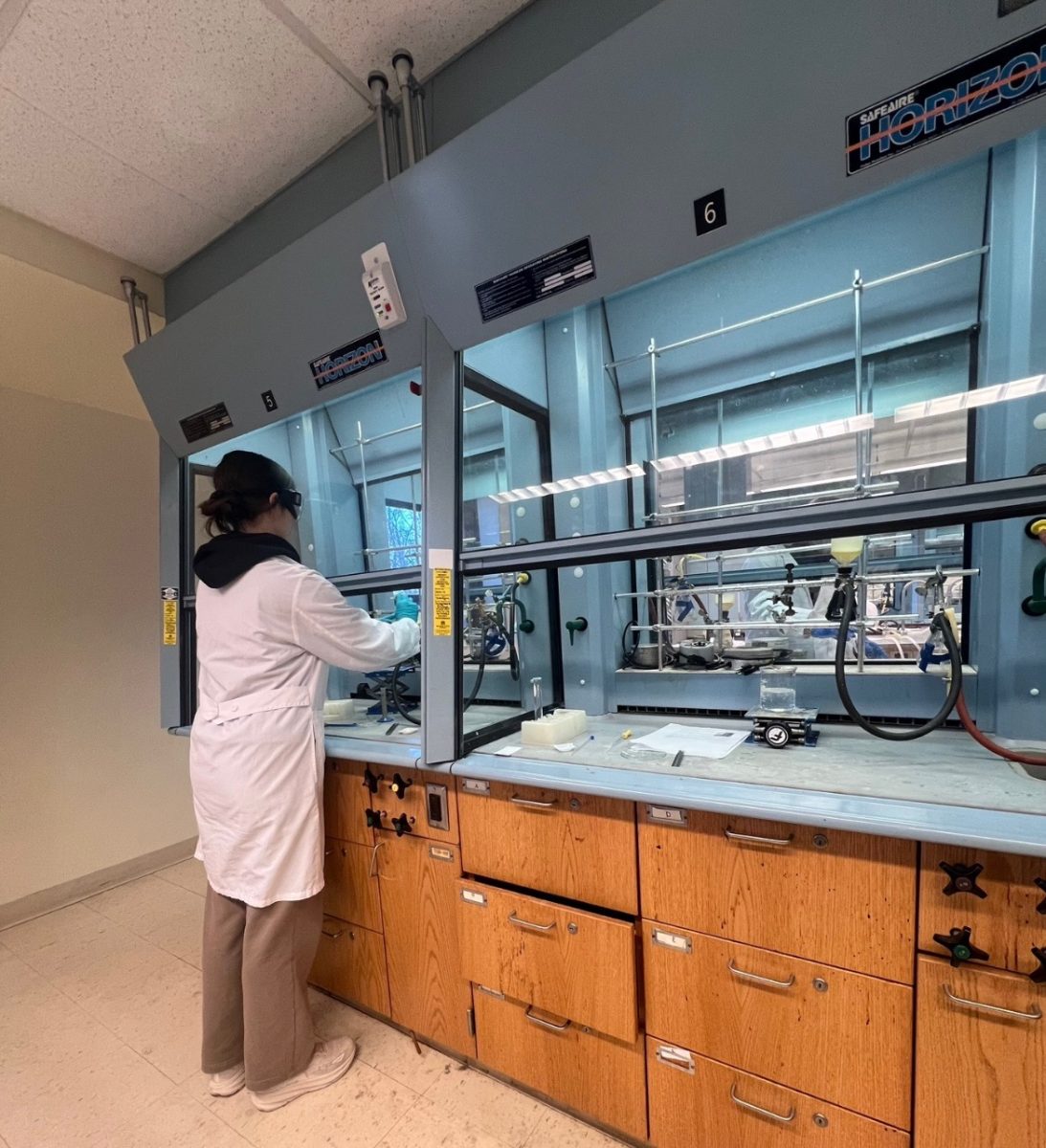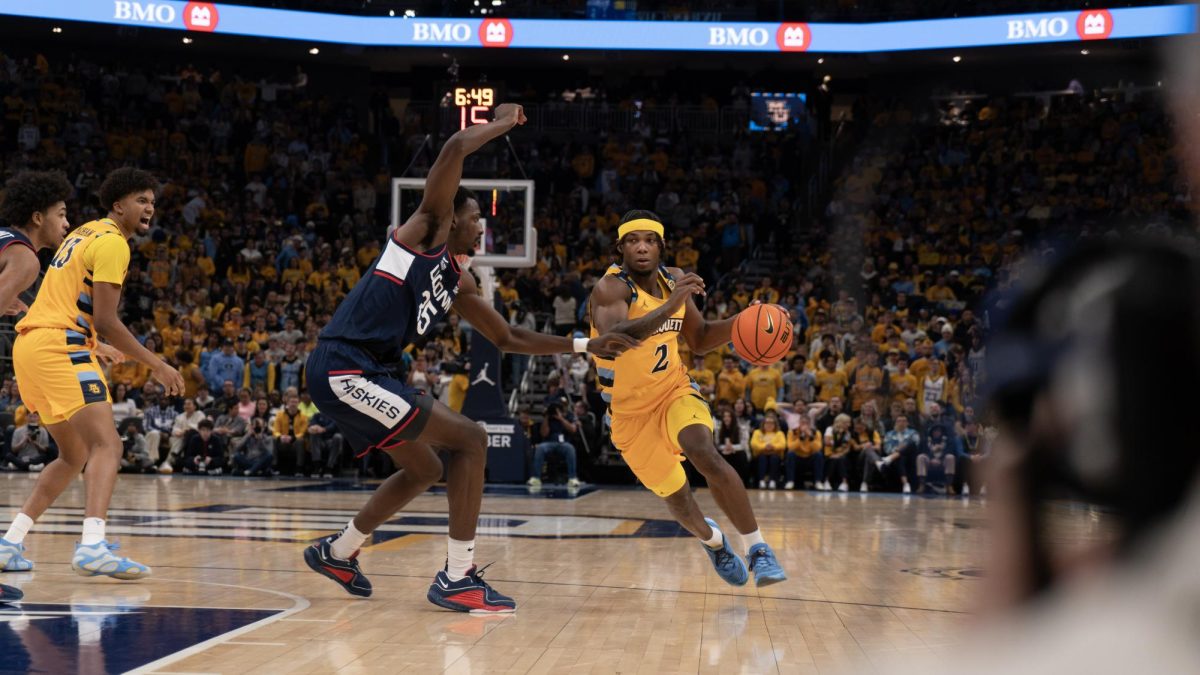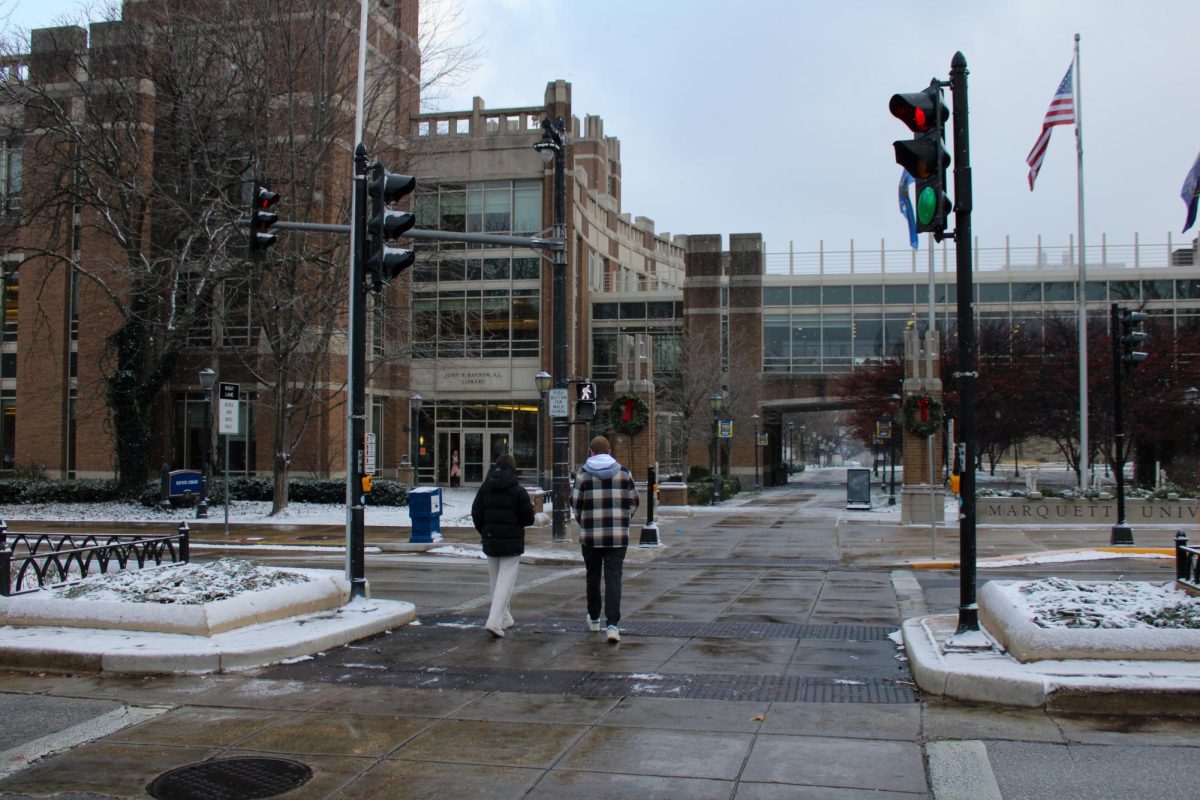Many students admit it’s hard to balance extracurriculars, jobs and academics on a daily basis. But for students who also work as Emergency Medical Technicians, their daily schedules include constant running around, trauma coverage and the thrill of the unknown.
Derek Gross, a sophomore in the College of Health Sciences, says to be no stranger to this fast-paced lifestyle. He first started as an EMT at Paratech Ambulance Service Inc. in mid-October 2018.
As a biomedical sciences major hoping to go to medical school, Gross says he wants to be an EMT to work toward his goal of becoming a trauma surgeon, gain early experience working directly with patients and give back to the community.
Gross is currently working one four-hour weekend shift per week, but occasionally picks up extra shifts during the week. He says he plans to work 24-hour shifts this summer and continue being an EMT while he is in medical school if he can handle it.
When he works his weekend shift, a day in the life of Derek Gross is far from slow.
SATURDAY
9 a.m. — After hitting snooze a few too many times, Gross wakes up from his Friday night of fun ready to take on a day of work. He gets himself ready for the day and stops at The Commons for a quick bite to eat before walking to the library to be productive.
“Over winter break I had this realization that I need to be way more efficient with my time,” Gross says. “I’ve always not been a morning person, and I’ve decided that I need to be.”
10 a.m. — Being a biomedical sciences major, it’s common for Gross to drown in homework. To stay on top of his massive to-do list, he says he tries to put in at least three hours of work per day at Raynor. Though his physiology and anatomy lessons in class help him understand conditions and diseases he sees in the field, being an EMT does not make school much easier.
During the week, Gross prioritizes school. He says he has to take care of classwork before anything else. But when he is at work, Gross says it can’t be that way.
“No matter what I have going on, I have to be 100 percent there at work doing my job because people depend on EMTs to give them the best care possible,” he says. “I don’t even bring homework to work because I need to be focused on what I’m doing there.”
Gross says it’s weird going back and forth between work and school.
“I feel like I’m living two lives when I’m at work and when I’m at school,” Gross says.
1 p.m. — After checking a few things off his to-do list and eating a quick lunch, Gross hits the gym or goes to his ultimate frisbee team’s practice to blow off some steam and stay in shape.
5 p.m. — Gross gets dinner with some friends and chills with them in their residence hall before they go out to enjoy their Saturday night. When it starts to get late and people are planning on going out to do something fun, Gross says he knows it’s time for work.
8 p.m. — Gross suits up in his uniform and is ready to begin his EMT duties. He says once his uniform goes on, he is no longer a student.
“You kinda feel like a bada–,” Gross says, describing the feeling of wearing his uniform.
“Sometimes I’m walking around campus with my uniform on, and even though I’m just a regular student, at the same time I know that I have the training to do certain things that not everyone has the training to do,” Gross says. “It’s a good feeling.”
9 p.m. — After walking from The Commons to his station on James Lovell Street and Wisconsin Avenue, Gross clocks in for his shift and calls dispatch to say he’s ready. Because it is the Saturday night shift, Gross says his ambulance is nicknamed “the drunk car” for good reason. Until he receives a call, Gross waits in the station, uniform on and ready, watching Netflix. He says that sometimes he gets a call right away, and sometimes he doesn’t get a call for a couple hours.
“Once you get a call, there’s an expectation that you’ll be in your ambulance ready to go within one minute of getting the call,” Gross says. “So they really never let us take off our uniforms or anything when we’re at the station. The only thing they let us take off is our boots.”
On average, Gross says he typically gets one call per four-hour shift, sometimes two. He says he has only received three calls once in a four-hour shift.
A Milwaukee EMT working a 24-hour shift may see about 20 calls because the call volume is through the roof. Gross says calls may include regular transports from nursing homes to doctors appointments and also 911 calls. He says he sees all types of patients.
“Sometimes it’s just driving a person to their destination, but sometimes it’s like, ‘Oh crap, we’ve got to make sure this person is okay,’” Gross says. “You see a lot of things (and) you learn a lot.”
10 p.m. — At the sound of the emergency alarms, Gross is instantly alerted of his call. He learns his patient is a weak, older woman and an ambulance is already at the scene. He begins to imagine her situation, and the stress creeps upon him. Gross says being an EMT is like going back and forth between stressful and non-stressful moments.
“Sometimes you’re just sitting around in the station doing nothing, and the next thing you know, you’ve got a call and for the next hour or so you’re going to be like, ‘Go, go, go, go, go,’” Gross says.
For the most part, he says it feels like a switch flips when he gets a call.
“You kind of just get really focused on what you’re doing,” Gross says. “Nothing matters besides the call that you’re on.”
10:01 p.m. — Gross hops in the driver’s seat, speeding to the scene and reviewing protocol in his head.
“Any person in (Emergency Medical Services) will tell you that the first thing they think about is ‘Is my scene safe?’” Gross says. “It’s one of the biggest things they drill in your head in class. You always make sure that the scene is safe.”
Gross says he’s never been put in any scary situations, but going out on calls at 1 a.m. in rough neighborhoods with no police around can be nerve-wracking.
“At at lot of places we go into, there’s a lot of drunk people and (the) smell of marijuana,” Gross says. “It’s much different than being on Marquette’s campus.”
10:45 p.m. — By the time Gross arrives at the scene, the fire department has already gotten the woman on her feet and ready for Gross’ team. Gross grabs his supplies and rushes to the house.
11 p.m. — When Gross finally makes it up to the patient’s house and sees her, he runs many checklists in his head. He says the first thing to do is figure out if the patient is experiencing a trauma-related incident or medical problem. Gross’ patient is experiencing a medical problem. He makes sure he only has one patient, and he checks for spinal injuries. Inspired by trauma surgeon Owen Hunt on “Grey’s Anatomy,” whose bright orange hair bears a stunning resemblance to Gorss, he grabs his proper technical equipment: gloves, goggles and masks, and he loads his patient onto the ambulance.
11:15 p.m. — By the time Gross gets his patient in the ambulance and takes a set of vitals, the oxygenation level in her blood significantly lowers, and she has a 103 degree fever. Even worse, his patient’s abdomen is fully distended, meaning it is full of blood.
“So there was a lot of things going wrong all at once, and she seemed stable, but particularly the abdomen distention was really, really concerning,” Gross says.
Gross begins thinking methodically, taking a split second to follow the “ABCs” and check his patient’s airway, breathing and circulation. He puts her on oxygen and drives as fast as he can to the hospital.
12:15 a.m. — Arriving at the hospital, Gross isn’t sure what will happen to his patient. He stays at the hospital to finish documenting and filling out reports. After completing a call, Gross says his main job is documentation.
“When you’re documenting, you’re creating legal and medical documents, so details and accuracy are extremely important,” Gross says. “It’s actually a pretty stressful part of the job as well.”
12:45 a.m. — After his call, Gross says he feels sweaty and tense. After finishing documentation, Gross is still concerned about his patient. He later learns that the paramedic went in and checked on the patient. She says the patient had a bleed inside of her bladder which was causing the abdominal distention and a massive infection all over. Gross says it was a miracle the patient was still alive when they got to her because she had been living like that for four days.
Gross says he likes to think that his patient that day turned out alright, but he will never know for sure.
“You don’t really know,” Gross says.
But he says that from the amount of detail that he put into his call, he is positive she will have a good recovery.
1:30 a.m. — Gross makes his way back to the station, feeling like he made a difference. That night, he does not have a second call to follow the first.
2 a.m. — When his shift ends, he takes a campus LIMO back to his residence hall, exhausted after a night of hard work. First semester, Gross had a night when one call went until 3:30 a.m. and by the time he was able to go to sleep, people were already starting to wake up. Some nights, Gross only gets four or five hours of sleep.
2:30 a.m. — As Gross lays his head on his pillow, he drifts to a deep sleep after a night filled with adventure.

